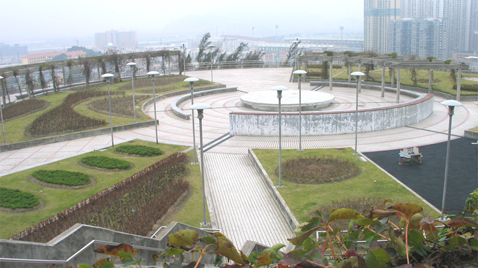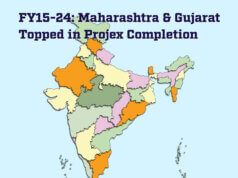
Illustration only/Wikimedia Commons

Managing Director
DeltaPure Water India Ltd.
Wastewater treatment provides usable water for domestic, agricultural and industrial purposes, helps to conserve and enhance water in quality and quantity, and prevents degeneration of surface and ground water resources. Green technologies, today, provide impressive water quality at competitive costs without contributing to global warming, writes Vikram Karunakaram, Managing Director, DeltaPure Water India Ltd.
India is in the midst of a massive urbanisation cycle with a majority of Indians expected to live in urban conglomerations within the next five years. This movement has seen many small towns rapidly improving their standards of living and becoming more metro-like in character. These cities are characterised by good public infrastructure such as electricity, piped water, sewage and sanitation services, telecommunications, public transport systems, educational facilities and access to healthcare. However, in most areas the quality of these services does not match international norms.
Water is used as the carrier liquid for conveying human waste away from point of generation therefore water and sanitation are implicitly linked and constitute critical infrastructure required for citizens in modern India. The recent campaigns such as Swachh Bharat by the Government of India has put renewed focus on the importance of treating waste water generated by industries and human habitations.
In the last half century, large public investments by Government of India in sewerage and sanitation facilities have resulted in near complete sewerage coverage in metro cities. Subsequently, Metro and Tier-II cities have set up large treatment facilities to treat the collected wastewaters. It is to be noted that sewerage networks are very capital intensive and typically capital cost of the network is of the order of five to ten times the capital cost of the treatment facility. These government sector investments in sewerages have increased the debt burden on public institutions such as municipal authorities. The debt servicing and operation costs of the collection network, coupled with the high operating costs of conventional sewage treatment systems have resulted in nearly 80 per cent of installed sewage treatment systems being underutilised or non functional due to lack of O&M outlays. This has lead to the resultant severe pollution in outlying areas and finally the rivers of India.
The above state of affairs have lead to laws and policy frameworks that enjoin private real estate industry to treat wastewaters at point of generation if the scale of real estate development exceeds 2 lakh sq. ft in built-up area, this is particular enforced in areas where civic authorities have not been able to provide sewerage systems. In other areas large real estate developers and most industries have been tasked to treat waste streams inside their townships and manufacturing units.
Private sector led demand for these services have led to an intense flurry of innovation in the decentralised treatment system space. As noted above decentralised treatment systems are attractive since they reduce the capital investment in collection systems. Unfortunately, conventional treatment technologies do not scale down efficiently. At small scales (<1 mld) conventional aerated treatment systems such as MBBR, SBR, ASP type technologies are unable to deliver robust treatment quality due to fluctuations in wastewater, power supply and availability of skilled manpower. Water is a scarce resource: It was this observation nearly 30 years ago that lead a team of scientists and researchers led by Prof. H.S. Shankar, Department of Chemical Engineering, IIT Bombay, to embark on creating ecologically engineered treatment systems harnessing the native principles of the carbon cycle in order to remove organic wastes from water. Wastewater treatment provides usable water for domestic agricultural and industrial purposes; helps to conserve and enhance water in quality and quantity; in addition, prevents degeneration of our water sources of surface and ground. Green technologies today provide impressive water quality at competitive costs without contributing to global warming. This technical specification presents a green biological purification engine using a natural novel high efficiency oxidation process variably known as CSF (constructed Soil Filter) or SBT (Soil Biotechnology) developed at IIT Bombay by Prof. H.S. Shankar and his students. Soil Biotechnology (SBT) is covered by two US patents (Patent Nos.6890438B2 & 7604742B2) and two Indian patents (Patent Nos.203744 & 203425) all assigned to IIT Bombay. CAMUS-SBT is advanced version of the basic SBT technology which uses less space, is easier to operate and offers superior water quality. The key advantage of CAMUS-SBT technology is 1) Low power requirements (can be powered by solar) 2) Green ambiance 3) Robust performance under low flow conditions 4) Fully automatic with remote sensing and monitoring options 5) Noiseless and Odourless, and 6) Can be integrated into any green space such as along compound walls, internal gardens, road medians, below roads and inside basements.











